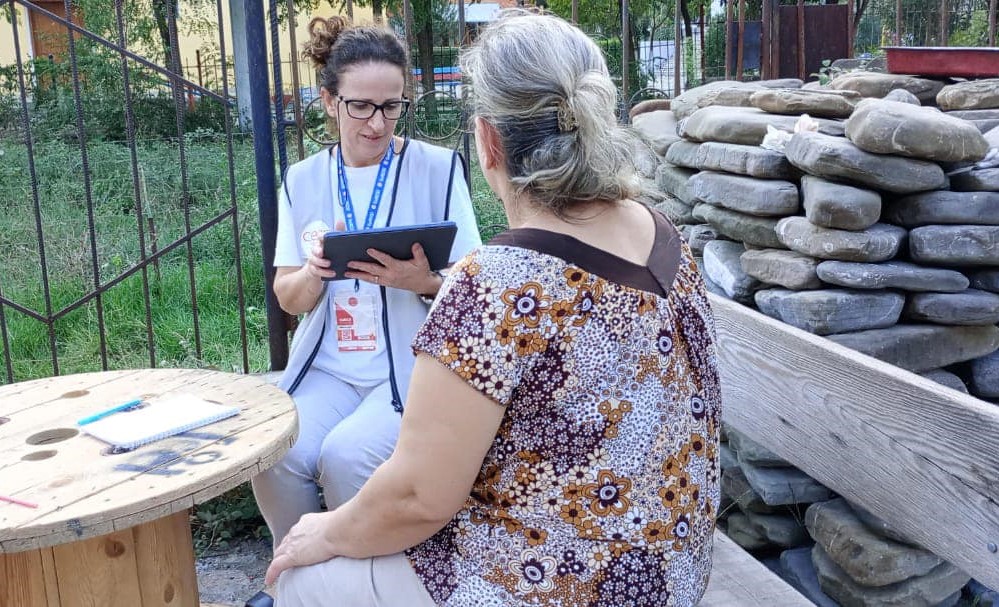Despite opportunity for self-identification in Albania’s 2023 Census, neighboring countries unhappy with results

To the disappointment of Greece and North Macedonia, Albania’s 2023 Census published recently, confirmed that the country is quite ethnically and linguistically homogeneous. Ethnic Albanians represent 91% of the total population, while 2.8% of the resident population declared another ethnicity.
For the first time in history, Albania collected census data on national minorities in conformity with the principle of self-identification. However, controversies with neighboring countries on the accuracy of national minorities’ data have already emerged.
Context
The previous census, in 2011, was governed by legal provisions that included fines for incorrect responses to the questionnaire and stipulated that a reply would be considered incorrect if it did not correspond with the data contained in the civil registry. In 2011, the registry was considered by the Council of Europe as ‘an unreliable source of information’ and the legal provisions on incorrect responses as ‘not compatible with the principles of free self-identification of persons belonging to national minorities, provided by Article 3 of the Framework Convention on National Minorities’.
In 2023, the census question on ethno-cultural affiliation was based on free self-identification. The question offered ten pre-defined options, i.e. Albanian and the nine ethnic minorities recognized by Albania’s 2017 Law on the Protection of National Minorities. The Census questionnaire also allowed for the declaration of an “Other ethno-cultural group” (with a follow-up question to specify), regardless of the pre-listed categories, to ensure the possibility for each individual to self-identify freely. Respondents could also choose ‘None’ if they did not identify with any ethnic identity, or ‘Mixed ethnic identity’ if they identified with multiple ethnicities (with a follow-up question to specify).
91.0 percent of the population declared Albanian ethnicity, while 2.8 percent declared another ethnicity, and 0.6 percent responded ‘Prefer not to answer.’ A small percentage of the population (0.05 percent) declared ‘None’ for ethnicity. For the remaining 5.6 percent of the population, data on ethnicity are not available because, according to INSTAT (the Albanian Institute of Statistics), ‘the question could not be asked to family members’.
| Ethnicity | Resident population by ethnicity | As percentage of total resident population |
| Total | 2 402 113 | |
| Albanian | 2 186 917 | 91% |
| Aromanian | 2 459 | 0.1% |
| Bosnian | 2 963 | 0.1% |
| Bulgarian | 7 057 | 0.2% |
| Greek | 23 485 | 1% |
| Egyptian | 12 375 | 0.5% |
| Macedonian | 2 281 | 0.09% |
| Montenegrin | 511 | 0.02% |
| Roma | 9 813 | 0.4% |
| Serbian | 584 | 0.02% |
| Other ethnic identity | 3 798 | 0.1% |
| Mixed ethnic identity | 770 | 0.03% |
| None | 1 142 | 0.05% |
| Prefer not to answer | 13 507 | 0.5% |
| Not available | 134 451 | 5.6% |
Source: INSTAT, ‘Censi i Popullsisë dhe Banesave në Shqipëri 2023, Rezultatet Kryesore’
The first controversy on the accuracy of data on national minorities emerged in connection with the Macedonian-Bulgarian identity dispute. According the 2023 census data, 7057 Albanian citizens identified themselves as belonging to the Bulgarian ethnicity and 2281 as belonging to the Macedonian ethnic group. North Macedonia’s Ministry of Foreign Affairs reacted to these data ‘with grave concern’ and pointed to ‘technical irregularities constantly denounced by the Macedonian associations in Albania in the preparations for the Census, but also during its implementation’. According to North Macedonian authorities, the census data ‘do not adequately reflect the real number of ethnic Macedonians in the country’. The Albanian reaction came with a press release by INSTAT, which stressed that census data were collected in strict conformity with the principle of self-identification.
The Greek Minister of Foreign Affairs Giorgos Gerapetritis challenged the data on the size of the Greek minority. According to census data, 23485 respondents identified themselves as ethnic Greeks, which represents 1% of the country’s resident population. Gerapetritis expressed “the (Greek) Ministry of Foreign Affairs’ reservations regarding the integrity of the census conducted in Albania.” He claimed that “the initial results demonstrate serious issues related to the registration process, which cast doubt on the results themselves. Members of the Greek ethnic minority have already exposed these issues. There are concerns regarding the manner in which this registration was conducted.” The Greek Foreign Minister also underlined that “respecting the accuracy of the data is clearly a prerequisite for the European course of any country. And we demand that all countries strictly adhere to these rules”. Hence, the dispute on the size of the Greek minority in Albania further complicates the relations between the two countries and the Greek position on Albania’s EU integration, adding to the tensions caused by the conviction for vote-buying of Fredi Beleri, ethnic Greek mayor-elect of Himara.


